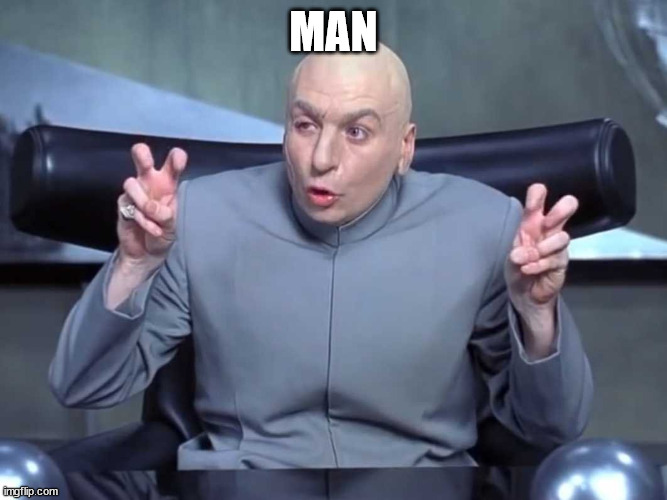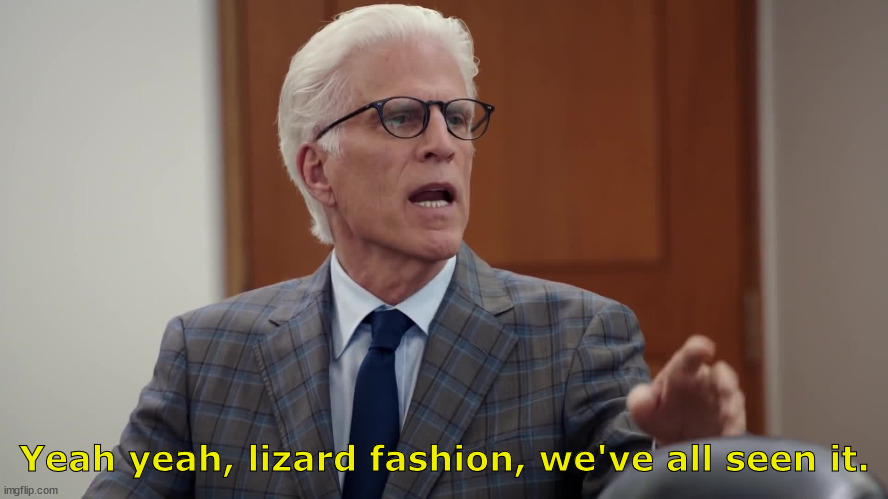May 3rd - Paprika, Trains, Queer Dreams
Thuktun F
You can complain now; I'm no longer a councilor
- Location
- United States
And so we officially begin our journey into the book Dracula.
It is also here that we get some insight into the region of the time. Despite being already being deep inside what we nowadays call Romania, Harker exclusively uses German terms for cuisine and cities, and his German is able to get him by in the area. It makes sense, as this region was under the jurisdiction of the empire of Austria-Hungary during this time.
Of last note for this section, we have another character name-dropped. I'm guessing that Mina is his wife or fiancee, though her relevance to the story has yet to be determined. Either way, it's very sweet of him to get a recipe for her.
The journal entry proceeds to talk about Transylvania for a while, which overall demonstrates a sort of romanticism, where the region is treated as a place of mystique and superstition (aka Brits don't often go there).
"Hmmm... chimken hot."
For another culinary note, mămăligă is basically Eastern European polenta. It is much coarser and thicker, to the point where you can slice it with a sewing thread and serve it like bread once it's cooled down, and you often smear sour cream or cream cheese on it. Highly recommend.
Even when China grew more interested in rail following them losing the first Sino-Japanese War in 1895, most of the construction was done by foreign powers, and shit still wasn't going great.
Anyway, Jonathan continues to describe the Transylvanian countryside and locals in ways that seem both products of the time, with his describing Slovaks as "On the stage they would be set down at once as some old Oriental band of brigands", as well as genuinely curious and unjudging, with him saying in the same breath that the Slovaks are just harmless people like all the others. I have seen less open-minded takes from modern tourists, so I'll give Johnny a pass for some of his statements.
Our entry ends with our good friend Jonathan arriving at his hotel in Bistritz (nowadays known as Bistrița), where he is given a letter.
Considering said prince's reputation, hopefully it's just a case of Stoker thinking the name was cool.
Already Stoker makes good on the epistolary format, with a good ol' fashioned journal entry. The mention that it is written in shorthand is of interest to me- owing to the setting of 1897 and Harker being what I assume is an Englishman, he is likely using Pitman shorthand, which was developed in 1837 (Pitman himself actually would've been dead only a few months from Jonathan's perspective). Stenography (also known as phonography at the time) was largely used by journalists and office workers like clerks and lawyers. Given Stoker's own experiences, perhaps our good friend Harker is a journalist?JONATHAN HARKER'S JOURNAL
(Kept in shorthand.)
3 May. Bistritz — Left Munich at 8:35 P. M., on 1st May, arriving at Vienna early next morning; should have arrived at 6:46, but train was an hour late. Buda-Pesth seems a wonderful place, from the glimpse which I got of it from the train and the little I could walk through the streets. I feared to go very far from the station, as we had arrived late and would start as near the correct time as possible. The impression I had was that we were leaving the West and entering the East; the most western of splendid bridges over the Danube, which is here of noble width and depth, took us among the traditions of Turkish rule.
Paprika hendl, also known as paprikás czirke or chicken paprikash, is a dish of Hungarian origin, and having made it on many occasions, I have to agree with Jonathan's praise. It's interesting that he describes it as "thirsty", likely meaning spicy. Is Stoker implicitly making a joke about the British palate, as modern paprikash uses sweet paprika, or did he do his research considering that paprikash of the time used the much spicier Hungarian paprika?We left in pretty good time, and came after nightfall to Klausenburgh. Here I stopped for the night at the Hotel Royale. I had for dinner, or rather supper, a chicken done up some way with red pepper, which was very good but thirsty. (Mem., get recipe for Mina.) I asked the waiter, and he said it was called "paprika hendl," and that, as it was a national dish, I should be able to get it anywhere along the Carpathians. I found my smattering of German very useful here; indeed, I don't know how I should be able to get on without it.
It is also here that we get some insight into the region of the time. Despite being already being deep inside what we nowadays call Romania, Harker exclusively uses German terms for cuisine and cities, and his German is able to get him by in the area. It makes sense, as this region was under the jurisdiction of the empire of Austria-Hungary during this time.
Of last note for this section, we have another character name-dropped. I'm guessing that Mina is his wife or fiancee, though her relevance to the story has yet to be determined. Either way, it's very sweet of him to get a recipe for her.
Lawyer it is then. And one who isn't afraid to dive into books to get a grasp of what to expect in Transylvania, which puts him above 99% of tourists.Having had some time at my disposal when in London, I had visited the British Museum, and made search among the books and maps in the library regarding Transylvania; it had struck me that some foreknowledge of the country could hardly fail to have some importance in dealing with a nobleman of that country.
The journal entry proceeds to talk about Transylvania for a while, which overall demonstrates a sort of romanticism, where the region is treated as a place of mystique and superstition (aka Brits don't often go there).
dog screaming itself hoarse under his windowI did not sleep well, though my bed was comfortable enough, for I had all sorts of queer dreams. There was a dog howling all night under my window, which may have had something to do with it; or it may have been the paprika, for I had to drink up all the water in my carafe, and was still thirsty.
"Hmmm... chimken hot."
Gotta give Jonathan credit here for going back for seconds. I too understand what it's like to still eat a food that ruins you because the yum-yum is worth it.I had for breakfast more paprika, and a sort of porridge of maize flour which they said was "mamaliga," and egg-plant stuffed with forcemeat, a very excellent dish, which they call "impletata." (Mem., get recipe for this also.)
For another culinary note, mămăligă is basically Eastern European polenta. It is much coarser and thicker, to the point where you can slice it with a sewing thread and serve it like bread once it's cooled down, and you often smear sour cream or cream cheese on it. Highly recommend.
From my personal experience? Pretty punctual, though they smell strongly of cigarettes. Then again, in 1897 Qing China, trains were treated with suspicion from all social levels, albeit for different reasons. The nobility thought they'd just bring more British imperialism (Empress Dowager Cixi also hated the noise of the engine and insisted they be pulled manually by eunuchs in her court), while the peasantry felt they messed with fengshui and would often just yank the rails out of the ground.I had to hurry breakfast, for the train started a little before eight, or rather it ought to have done so, for after rushing to the station at 7:30 I had to sit in the carriage for more than an hour before we began to move. It seems to me that the further east you go the more unpunctual are the trains. What ought they to be in China?
Even when China grew more interested in rail following them losing the first Sino-Japanese War in 1895, most of the construction was done by foreign powers, and shit still wasn't going great.
Anyway, Jonathan continues to describe the Transylvanian countryside and locals in ways that seem both products of the time, with his describing Slovaks as "On the stage they would be set down at once as some old Oriental band of brigands", as well as genuinely curious and unjudging, with him saying in the same breath that the Slovaks are just harmless people like all the others. I have seen less open-minded takes from modern tourists, so I'll give Johnny a pass for some of his statements.
Our entry ends with our good friend Jonathan arriving at his hotel in Bistritz (nowadays known as Bistrița), where he is given a letter.
And with that we have been introduced, if only indirectly, to the title character of the book. He seems amiable enough, though I will admit I find the name suspect- in Romanian, dracula means "son of the devil", with etymology deriving from the Latin word for dragon (dragons have been long associated with Satan). It also shares a name with a prince of Wallachia, a state that bordered Transylvania."My Friend.--Welcome to the Carpathians. I am anxiously expecting you. Sleep well to-night. At three to-morrow the diligence will start for Bukovina; a place on it is kept for you. At the Borgo Pass my carriage will await you and will bring you to me. I trust that your journey from London has been a happy one, and that you will enjoy your stay in my beautiful land.
Your friend,
DRACULA.
Considering said prince's reputation, hopefully it's just a case of Stoker thinking the name was cool.





